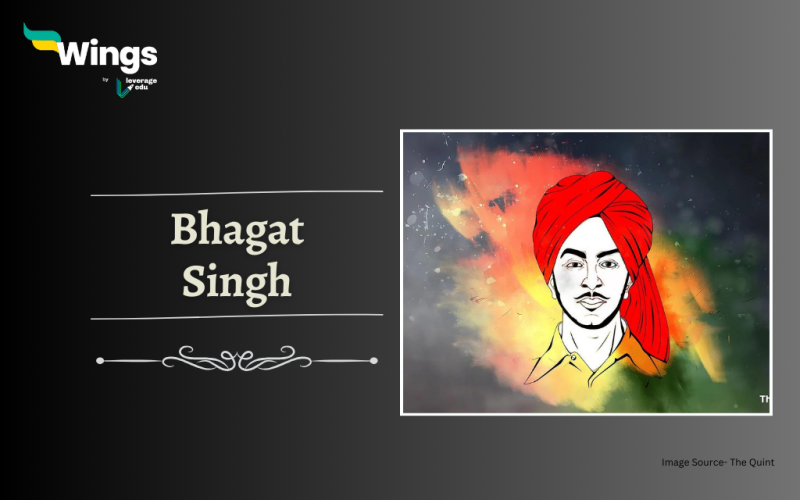Bhagat Singh was a revolutionary hero who fought for the Indian independence movement in the early 20th century. Being a vocal critic of the British raj in India, he was a part of two high-profile attacks on the British authorities. One of these attacks was on a local police chief and the other one was carried out in Delhi at the Central Legislative Assembly.
Table of Contents [show]
Bhagat Singh Biography And Education
Bhagat Singh was born in the month of September 1907 in western Punjab, India. He was one of the most famous revolutionary heroes who fought for the independence of India. Bhagat Singh finished his schooling at the Dayanand Anglo Vedic High School. This school was operated by Arya Samaj, that was a reform sect of modern Hinduism. He completed his college at the then National College and both were located in Lahore.
Also Read: All about Sukhdev
Freedom Struggle Of Bhagat Singh
Bhagat Singh began to protest and raise his voice against British rule in India at a very young age and soon started the fight for national independence. He was also an editor and writer in Amritsar and wrote for Punjabi as well as Urdu-language newspapers that espoused Marxist theories. His catchphrase “Inquilab zindabad” or (“Long live the revolution”) is well known and very famous amongst the young and the old.
In the year 1928, Bhagat Singh, along with other fellow freedom fighters plotted to kill the police chief that was behind the death of Lala Lajpat Rai. He was also one of the founders of the National College. He died during a silent march that was carried out in opposition to the Simon Commission. This attack on police Chief James A Scott ultimately led to the execution and death of Bhagat Singh under the British government.
Also Read – When did Bhagat Singh Die?
Death Of Bhagat Singh
When Bhagat Sigh and his aids plotted to kill the chief, in a case of mistaken identity, they instead killed the junior officer J.P. Saunders. Bhagat Singh had to flee to Lahore in order to escape the death penalty.
In 1929, in another incident, he along with an associate planted a bomb at the Central Legislative Assembly in Delhi. This was done to protest the implementation and passing of the Defence of India Act. Bhagat Singh later surrendered. He was hanged in the year 193 at the age of 23 for the murder of Saunders.
Also Read: All about Sardar Vallabhbhai Patel
Facts About Bhagat Singh
Following are a few interesting facts about Bhagat Singh
- Bhagat Singh was an admirer and follower of Marxism
- He was inspired by the writings of Leon Trotsky, Vladimir Lenin, and Mikhail Bakunin.
- He was a Sikh by birth, but he had to shave his beard as well as cut his hair to avoid being recognised by the police and being arrested for the killing.
- He also went on a hunger strike when he was in jail. This protest was against the policy of better treatment for prisoners that belonged to a foreign origin.
Relevant Blogs
This is all about the revolutionary Bhagat Singh. For more content, you can see our Study notes on the Modern History of India here. Also, you can visit our general knowledge page on Indian History!
 One app for all your study abroad needs
One app for all your study abroad needs















 45,000+ students trusted us with their dreams. Take the first step today!
45,000+ students trusted us with their dreams. Take the first step today!
